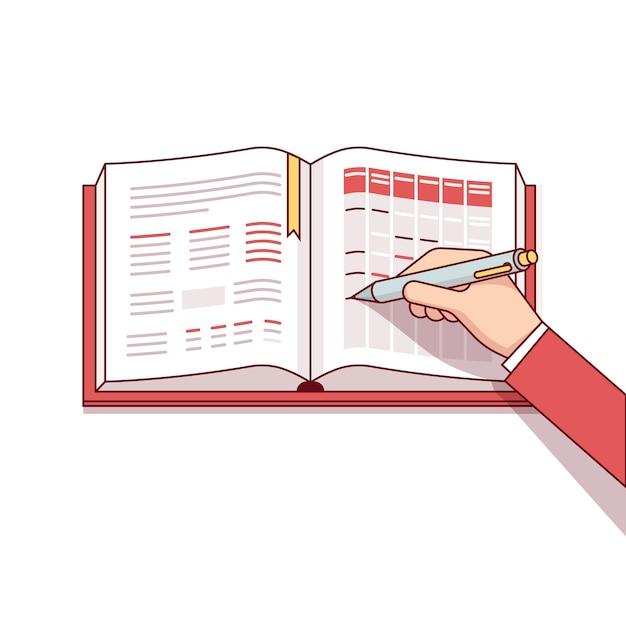Have you ever struggled to write a thesis statement for a book report? You’re not alone! Crafting a strong thesis statement is essential for capturing the main idea of your book report and setting the tone for the rest of your analysis. But, fear not, because today I’m going to share with you some valuable tips and examples that will help you ace this important task.
In this blog post, we’ll delve into what a thesis statement is, its purpose in a book report, and how to write one effectively. We’ll also explore some simple, compound, and complex sentence structures, providing examples along the way. By the time you finish reading, you’ll have all the tools you need to confidently create a compelling thesis statement for your next book report.
So, let’s dive in and uncover the secrets to making your thesis statement shine. Get ready to take your book reports to the next level in 2023 and beyond!

How to Craft a Thesis Statement for a Book Report
When it comes to writing a book report, one of the most crucial elements is the thesis statement. This statement sets the tone for the entire report and guides the reader’s understanding of your perspective. Crafting a strong and impactful thesis statement requires some finesse, but fear not, dear reader! We’re here to help you master this art with our handy guide. So, grab your pen and paper, let’s dive right in!
Understanding the Book’s Purpose
Before diving headfirst into the abyss of thesis crafting, it’s essential to grasp the purpose of the book you’re reporting on. Whether the book is meant to inform, entertain, or provoke critical thinking, understanding its primary objective will help you develop a thesis that aligns with the author’s intentions.
Identifying the Central Theme
Every book has a central theme, a thread that weaves through its pages, connecting characters, events, and ideas. To create a compelling thesis statement, you must identify this underlying theme and use it as the foundation for your analysis. Ask yourself, “What message is the author trying to convey?” “What are the recurring motifs or symbols?” Once you’ve answered these questions, you’re ready to rock and roll!
Taking a Stand
Now that you’ve deciphered the book’s purpose and identified its central theme, it’s time to take a stance. A good thesis statement should present a clear opinion or argument about the book. This is your opportunity to show your critical thinking prowess and demonstrate your unique perspective. So, don’t be afraid to unleash your inner literary warrior and take a bold stand!
Balancing Specificity and Brevity
Crafting a thesis statement is like walking a tightrope; you must strike the perfect balance between specificity and brevity. On one hand, your thesis should be concise and to the point, capturing the essence of your argument in a single sentence. On the other hand, it needs to be specific enough to guide your report and leave no room for ambiguity. It’s a delicate dance – think Swan Lake, but with words!
Polishing your Masterpiece
After pouring your heart and soul into crafting the perfect thesis statement, it’s time to give it a shiny polish. Take a step back, reread your statement, and ask yourself if it truly reflects your argument. Is it captivating? Does it make you want to dive into the book report headfirst? If the answer is yes, congratulations! You’ve crafted a superb thesis statement. If not, fear not, my friend. Reword, revise, and repeat until your statement shines like a thousand suns.
Wrapping it Up
Crafting a thesis statement for a book report may seem like a daunting task, but with a little know-how and a touch of imagination, you can conquer this literary challenge. Remember, understanding the book’s purpose, identifying the central theme, taking a stand, balancing specificity and brevity, and polishing your masterpiece are the holy grail to crafting an exceptional thesis statement. Now, go forth and let your thesis shine brighter than the North Star!
Disclaimer: While this guide guarantees an awesome thesis statement, we cannot guarantee a standing ovation or a parade in your honor. But we’re rooting for you!

FAQ: How to Write an Engaging Thesis Statement for a Book Report
Crafting a compelling thesis statement for a book report can be both challenging and exciting. By creating a clear and concise thesis statement, you set the foundation for a captivating analysis of the book’s main themes, characters, and plot. In this FAQ-style guide, we’ll address some common questions about writing a thesis statement for a book report, providing examples and tips to help you express your ideas effectively.
1. What Makes a Good Thesis Statement
A good thesis statement for a book report is clear, specific, and compelling. It should succinctly summarize the key point of your analysis while enticing readers to delve deeper into your thoughts. Remember, a strong thesis statement serves as the backbone of your entire book report, so make it shine!
2. How Do You Write a Thesis Statement for a Book Report
To write a strong thesis statement for a book report, follow these steps:
a) Identify the Book’s Central Idea
Before crafting your thesis statement, thoroughly understand the book’s central concept or main theme. Consider the messages the author wants to convey and the impact they have on the plot and characters.
b) Analyze the Book’s Elements
Examine the book’s characters, plot development, and literary devices. Identify recurring motifs or symbols that add depth to the story. Understanding these elements will help you shape a more insightful thesis statement.
c) Condense Your Main Idea
Refine your thoughts into a concise statement that captures your unique interpretation of the book. Avoid vague or broad statements and instead focus on a specific angle that will engage your readers.
d) Make It Captivating
Add a touch of creativity to your thesis statement. Surprise your readers with an intriguing angle or a thought-provoking question. A little humor can also go a long way in capturing their attention!
3. What is the Role of a Thesis Statement in a Book Report
In a book report, the thesis statement serves as the main argument or central claim. It sets the stage for your analysis by providing readers with a preview of your interpretation of the book. Your thesis statement guides the structure of your report, ensuring that your arguments and evidence align with your overall perspective.
4. Can You Share Some Examples of Strong Thesis Statements
Certainly! Here are five examples of engaging thesis statements for book reports:
a) Example 1: A Classic Tale of Redemption
Harper Lee’s “To Kill a Mockingbird” masterfully explores the journey of moral growth and racial prejudice, reminding us that true courage resides in fighting for justice.
b) Example 2: The Allure of the Unknown
In H.G. Wells’ “The Time Machine,” the author challenges our perception of progress and warns against the dangers of an unchecked desire for advancement.
c) Example 3: Love Beyond Borders
“The Kite Runner by Khaled Hosseini powerfully portrays the complexities of love, loyalty, and redemption against the backdrop of war-torn Afghanistan, provoking a heartfelt reflection on the universal desire for forgiveness.”
d) Example 4: Unraveling the Tapestry of Deception
In Agatha Christie’s “Murder on the Orient Express,” the mastermind detective Hercule Poirot meticulously untangles a web of lies and deceit, leaving readers on the edge of their seats until the final revelation.
e) Example 5: A Hero’s Quest for Identity
“The Odyssey” by Homer takes us on a thrilling odyssey alongside the resourceful hero Odysseus as he battles mythical creatures and navigates treacherous seas, ultimately illuminating the timeless struggle for self-discovery.
5. How Can I Incorporate Complex Sentences in My Thesis Statement
Complex sentences can add depth and sophistication to your thesis statement. One approach is to use a subordinate clause to provide additional context or emphasize a specific aspect of your analysis. For example:
“By exploring the complex relationship between nature and nurture in Mary Shelley’s “Frankenstein,” we gain insight into the moral implications of unchecked scientific progress.”
By incorporating a complex sentence, you showcase your writing skills and demonstrate a thoughtful understanding of the book’s themes.
Writing a compelling thesis statement for a book report is an opportunity to showcase your analytical skills and captivate readers. By following the steps outlined in this FAQ-style guide, you can create a thesis statement that accurately reflects your interpretation while enticing others to explore the book alongside you. Remember to stay focused, be creative, and have fun crafting your thesis statement!
